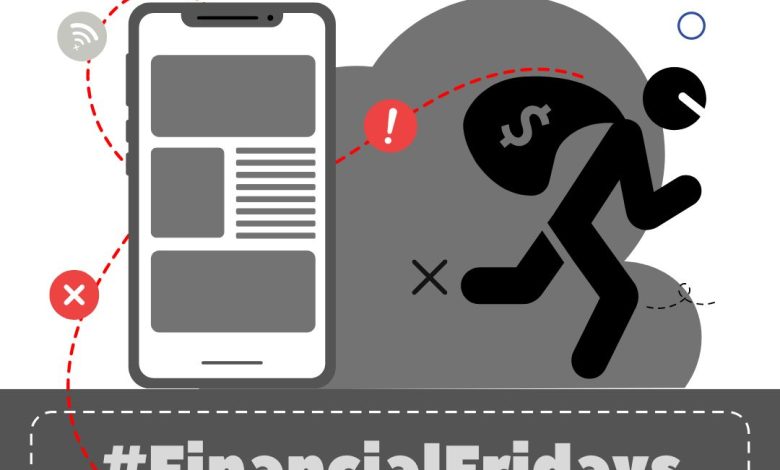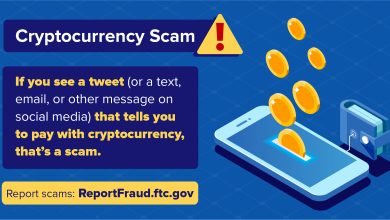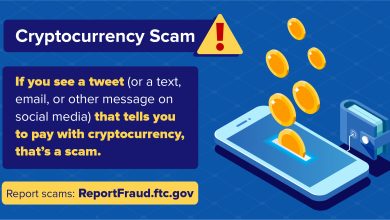What are the most common scams

- Introduction to common scams
- How to recognize a scam
- Top 5 most common scams to watch out for
- Protecting yourself from online scams
- Signs that you may be a target of a scam
- Reporting scams and seeking help
Introduction to common scams
Scams are unfortunately a common occurrence in today’s society, with scammers constantly coming up with new ways to deceive unsuspecting individuals. It is important to be aware of the most common scams so that you can protect yourself from falling victim to them. Some of the most prevalent scams include phishing, where scammers try to obtain sensitive information such as passwords and credit card numbers through fraudulent emails or websites. Another common scam is the lottery scam, where individuals are informed that they have won a large sum of money but must pay a fee to claim their prize. Additionally, there are investment scams, where individuals are promised high returns on their investments but end up losing their money instead. By familiarizing yourself with these common scams, you can better protect yourself and your finances from falling into the hands of scammers.
How to recognize a scam
Recognizing a scam can be challenging, but there are some common signs to watch out for. One of the most important things to remember is to always be cautious when dealing with unfamiliar individuals or organizations. If something seems too good to be true, it probably is. Here are some key indicators that can help you identify a scam:
- Unsolicited communication: Be wary of emails, phone calls, or messages from unknown sources claiming you have won a prize or need to provide personal information.
- Pressure tactics: Scammers often use high-pressure tactics to rush you into making a decision without giving you time to think it over.
- Request for payment: Legitimate organizations will not ask you to pay fees upfront in order to receive a prize or service.
- Poor grammar and spelling: Many scams originate from overseas, so be on the lookout for poorly written messages.
- Unsecure websites: Before entering any personal information online, make sure the website is secure by checking for “https” in the URL.
By staying vigilant and following these tips, you can protect yourself from falling victim to common scams. Remember, if something doesn’t feel right, it’s always better to err on the side of caution.
Top 5 most common scams to watch out for
Scams are unfortunately prevalent in today’s society, and it’s essential to be aware of the most common ones to protect yourself from falling victim. Here are the top 5 scams to watch out for:
- Phishing Scams: These scams involve fraudulent emails or messages that appear to be from reputable companies or individuals. They often ask for personal information such as passwords or credit card details.
- Online Shopping Scams: Be cautious when making purchases online, especially from unfamiliar websites. Some scammers create fake online stores to steal your money or personal information.
- Investment Scams: Beware of investment opportunities that promise high returns with little to no risk. Always research and verify the legitimacy of the investment before committing any funds.
- Lottery Scams: If you receive a notification that you’ve won a lottery or prize that you didn’t enter, it’s likely a scam. Legitimate lotteries do not ask for payment to claim your winnings.
- Romance Scams: Scammers create fake online profiles to build romantic relationships with individuals and eventually ask for money or gifts. Be cautious when interacting with strangers online.
By staying informed and vigilant, you can protect yourself from falling victim to these common scams. Remember to always verify the legitimacy of any requests for personal or financial information before taking any action.
Protecting yourself from online scams
Protecting yourself from online scams is crucial in today’s digital age. Here are some tips to help you stay safe:
- Be cautious when sharing personal information online. Avoid providing sensitive details such as your bank account or social security number to unknown sources.
- Verify the legitimacy of websites before making any purchases. Look for secure payment options and check for reviews from other customers.
- Avoid clicking on suspicious links or email attachments. These could be phishing attempts to steal your personal information.
- Keep your antivirus software up to date to protect your device from malware and other online threats.
- Use strong, unique passwords for each of your online accounts to prevent unauthorized access.
By following these precautions, you can reduce the risk of falling victim to online scams and protect your personal and financial information.
Signs that you may be a target of a scam
There are several signs that you may be a target of a scam. It is important to be aware of these red flags to protect yourself from falling victim to fraudulent schemes. Some common indicators that you may be dealing with a scam include:
- Pressure to act quickly or make a decision on the spot
- Requests for payment or personal information upfront
- Offers that seem too good to be true
- Communication that is riddled with spelling and grammatical errors
- Unsolicited emails or phone calls asking for sensitive information
If you encounter any of these warning signs, it is best to proceed with caution and do some research before proceeding. Remember, it is always better to be safe than sorry when it comes to protecting yourself from scams.
Reporting scams and seeking help
If you have fallen victim to a scam or suspect fraudulent activity, it is crucial to report it immediately. **Reporting scams** helps authorities track down scammers and prevent others from becoming victims. You can seek help from various organizations and agencies that specialize in handling scams and fraud cases.
One of the most common ways to report a scam is through the **Federal Trade Commission (FTC)**. The FTC is a government agency that works to protect consumers from fraudulent practices. You can file a complaint on their website or call their toll-free number to report a scam. Additionally, you can contact your local **Consumer Protection Agency** or **Better Business Bureau** to report scams and seek assistance.
It is essential to provide as much information as possible when reporting a scam. Include details such as the scammer’s contact information, the nature of the scam, and any financial transactions that took place. This information will help authorities investigate the scam and take appropriate action against the perpetrators.
In addition to reporting scams, it is crucial to seek help if you have been a victim of fraud. Contact your bank or credit card company immediately to report any unauthorized transactions. They can help you **recover** any lost funds and prevent further fraudulent activity on your account. You may also consider contacting a **legal** advisor or **consumer rights** organization for assistance in dealing with the aftermath of a scam.
Remember, reporting scams and seeking help is essential to protect yourself and others from falling victim to fraudulent schemes. By taking action promptly, you can help authorities crack down on scammers and prevent future scams from occurring.



